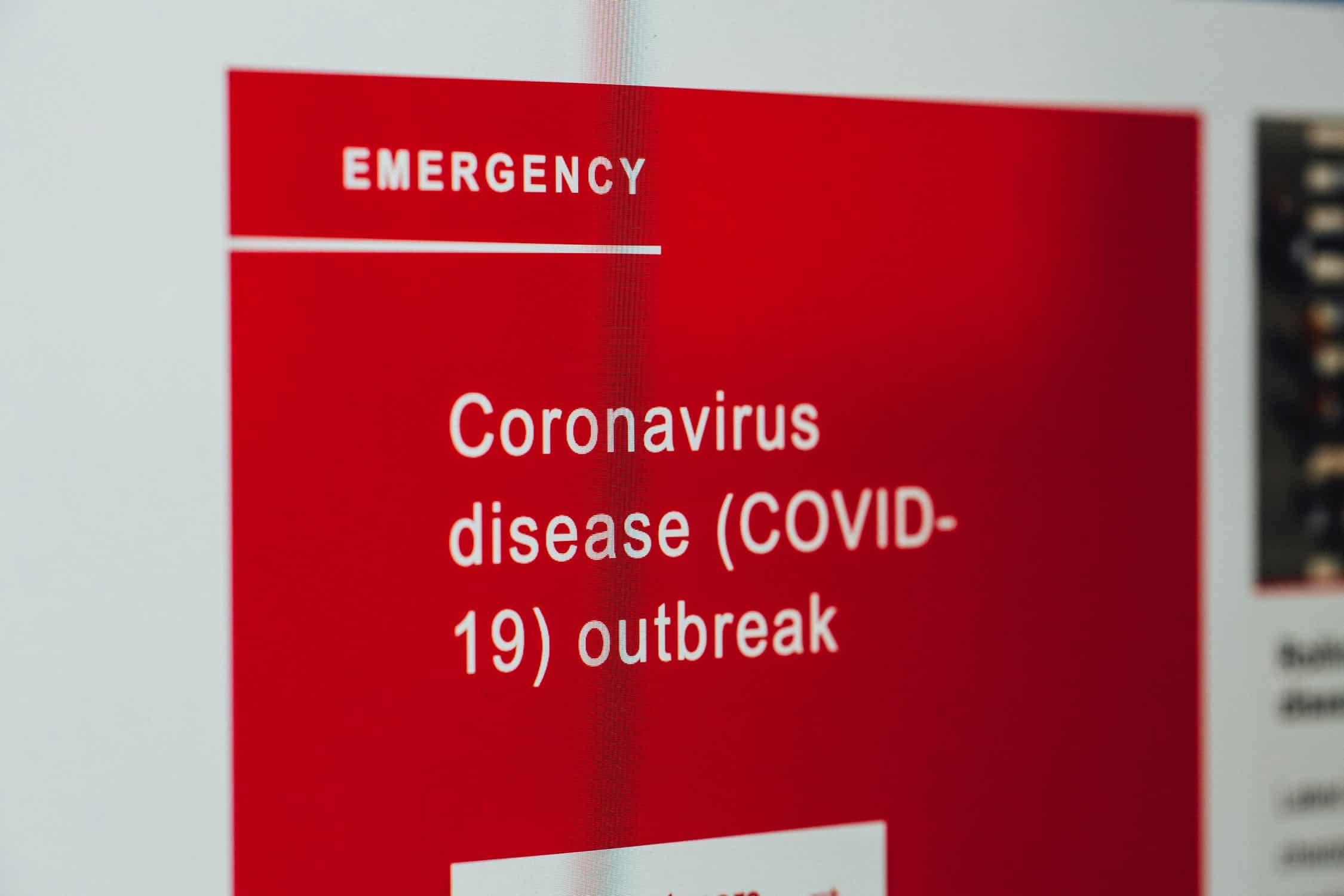Anxiety and depression during COVID-19
Many of us are experiencing a wide range of emotions throughout the COVID-19 pandemic, including anxiety and depression. These feelings can be overwhelming and cause us to feel like we are on a rollercoaster of emotions.
We are months into this pandemic, and we don’t see the end in near sight. Everyone is experiencing things in their own way and overall, it is impacting everyone’s mental health and well-being. While we are protecting our physical health and taking precautions to prevent ourselves from catching the virus, it’s equally important to protect our mental health and wellness.

What are the most common emotions during the COVID-19 pandemic?
It is normal to have a mix of emotions during these precedented times. Many people are feeling a mix of sadness, depression, anxiety and even feelings of panic. In addition to those feelings, confinement and uncertainty can also increase feelings of loneliness, stress, frustration, and anger.
When these emotions take over our bodies, we reach emotional exhaustion. It is important to understand what you’re feeling and apply strategies to help manage and shift these difficult emotions. When emotions of sadness, worry, or anger are very intense and frequent, it is advisable to consult with a therapist or medical professional to help manage and channel the emotions in a healthy way.

5 Tips to Maintain Your Mental Health During COVID-19
Recognize and accept your emotions
While these are very challenging times and emotions often feel out of control, neglecting or avoiding them will only intensify them. Do your best to focus on what you can control. This is a time that we need to nurture and pay attention to our mental health even more than ever. Allow yourself to feel your emotions, process through them, and finding healthy ways to adjust these feelings. Try journaling, expressing emotions through art or creativity, or calling a loved one to best work through these complicated feelings.
Eat a healthy diet
Healthy eating has become essential at this time, as a proper diet supports the immune system and helps mental health. It’s also important to stick to consistent mealtimes and not allow yourself to fall into emotional eating. This does not mean you can’t treat yourself to comfort food. It does mean that we benefit overall when we canfind a balance. Nourishing with foods rich in tryptophan, vitamins, and trace elements such as selenium are particularly helpful in maintaining good mental health. Our mood is directly impacted by the foods we eat and this can affect your mental health during COVID-19.
Take breaks from news exposure
Information overload and overstimulation of news exposure can lead to panic, anxiety, and depression. Allow yourself scheduled times to check in or educate yourself, but equally allow yourself breaks when unpleasant emotions surface. Shift gears, change your focus, and do something enjoyable that changes your thoughts and feelings if you find that you have been exposed to too much media. Try refraining from electronic devices for a while, getting out in nature, getting some physical exercise, or escaping into a book to give yourself a brain break from the news that can increase those overwhelming feelings.
Focus on gratitude
Feelings of hopelessness can become overwhelming when you’re feeling anxiety and depression during COVID-19 (or anytime). Give yourself time to find things to be grateful for even during chaos and struggle. Hop on a video call with a loved one and share things that you’re grateful for in life. Focusing on gratitude has a way of boosting your mood.
Meditate, exercise, and sleep
Taking care of our bodies is key in times when emotions are running high. Meditation helps reduce stress levels and fear, as it is an excellent tool to calm the mind. Deep breathing or practicing a body scan can help us to calm our nervous system. Exercise, on the other hand, helps reduce anxiety and stimulates the release of endorphins. There is power in moving our bodies! It is known to be one of the most effective ways to boost your mood and is a natural antidepressant. Together, meditation practice and exercise routine are very useful tools to increase the feeling of wellness. Also, note that getting adequate sleep and rest is imperative to our mental health. It helps us to reset our entire body and brain and will be necessary in managing those overwhelming emotions that can arise during this time.

About the Contributor
Mandy Paysse
Proofed and Verified by: Erica Aina, LCSW
Erica is the Clinical Supervisor and one of many therapists at Elliott Counseling Group. As the Clinical Supervisor she supports clinical growth, oversees protocols, and provides mentorship, monitoring, support, and supervision to therapists. As a therapist, she specializes in trauma work, depression, children/teen issues, and crisis management.
WE’RE BETTER TOGETHER.
We offer medication management, therapy, and counseling services in Champaign, Urbana, Mattoon, and throughout Illinois with Telehealth. There are no long wait lists and we are accepting new clients. We would love to see if we fit your needs well. Contact our client care team to get started.
